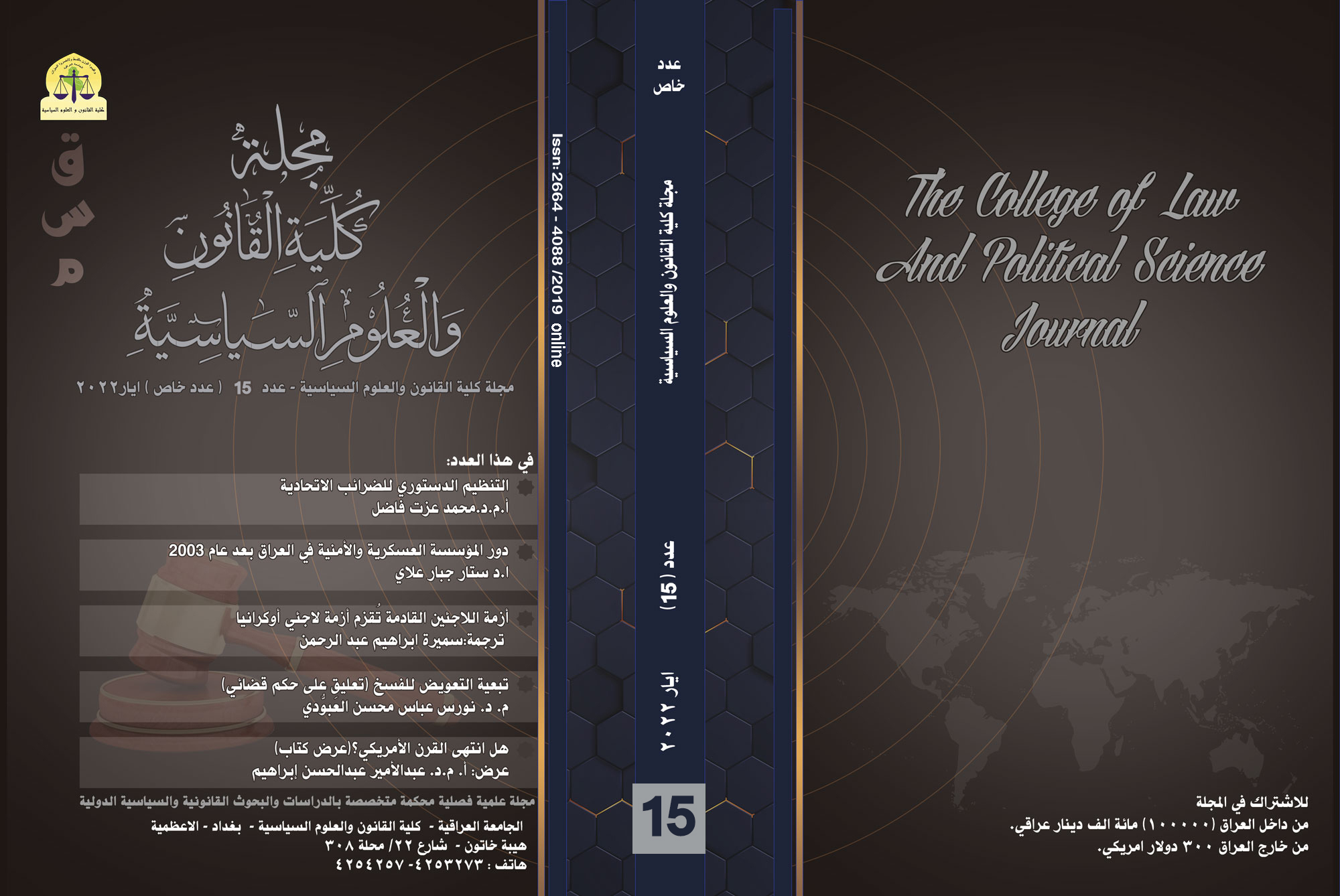Financial and administrative corruption crimes in the private sector under the First Amendment Law of the Integrity and Illicit Gain Commission Law No. 30 of 2019
DOI:
https://doi.org/10.61279/4q9gb329Keywords:
lawAbstract
Corruption in the private sector as well as corruption in the public sector pose a
major threat to societies. This led the United Nations to adopt the Convention against
&RUUXSWLRQDWWKHEHJLQQLQJRIWKHWZHQW\ÀUVWFHQWXU\*ZKLFKZDVUDWLÀHGE\,UDT
7KHIDFWWKDW,UDT
VDFFHVVLRQWRDQGUDWLÀFDWLRQRIWKH8QLWHG1DWLRQV&RQYHQWLRQ
against Corruption means that the country is legally bound by its provisions*
EHFDXVHUDWLÀFDWLRQRIDQLQWHUQDWLRQDOWUHDW\* by virtue of constitutions and laws*
makes it an integral part of the national legal order. However* the Integrity Authority
Act No. 30 of 2011 did not include provisions to criminalize corruption in the private
sector*EXWWKHÀUVWDPHQGPHQWWRWKH$FWRI2019* which included changing many
of the legal provisions contained therein* as well as changing the name of the
Act and making it a law. Among the fundamental amendments introduced by the
OHJLVODWXUHDUHWKHFULPLQDOL]DWLRQRIFHUWDLQIRUPVRIÀQDQFLDODQGDGPLQLVWUDWLYH
corruption of non-employees when it comes to government projects. This means
extending criminalization and extending the competence of the Integrity Authority
in important crimes such as bribery and embezzlement to non-employees.
Downloads
Downloads
Published
Issue
Section
License
Copyright (c) 2023 The college of law and political science journal

This work is licensed under a Creative Commons Attribution-NonCommercial-NoDerivatives 4.0 International License.

